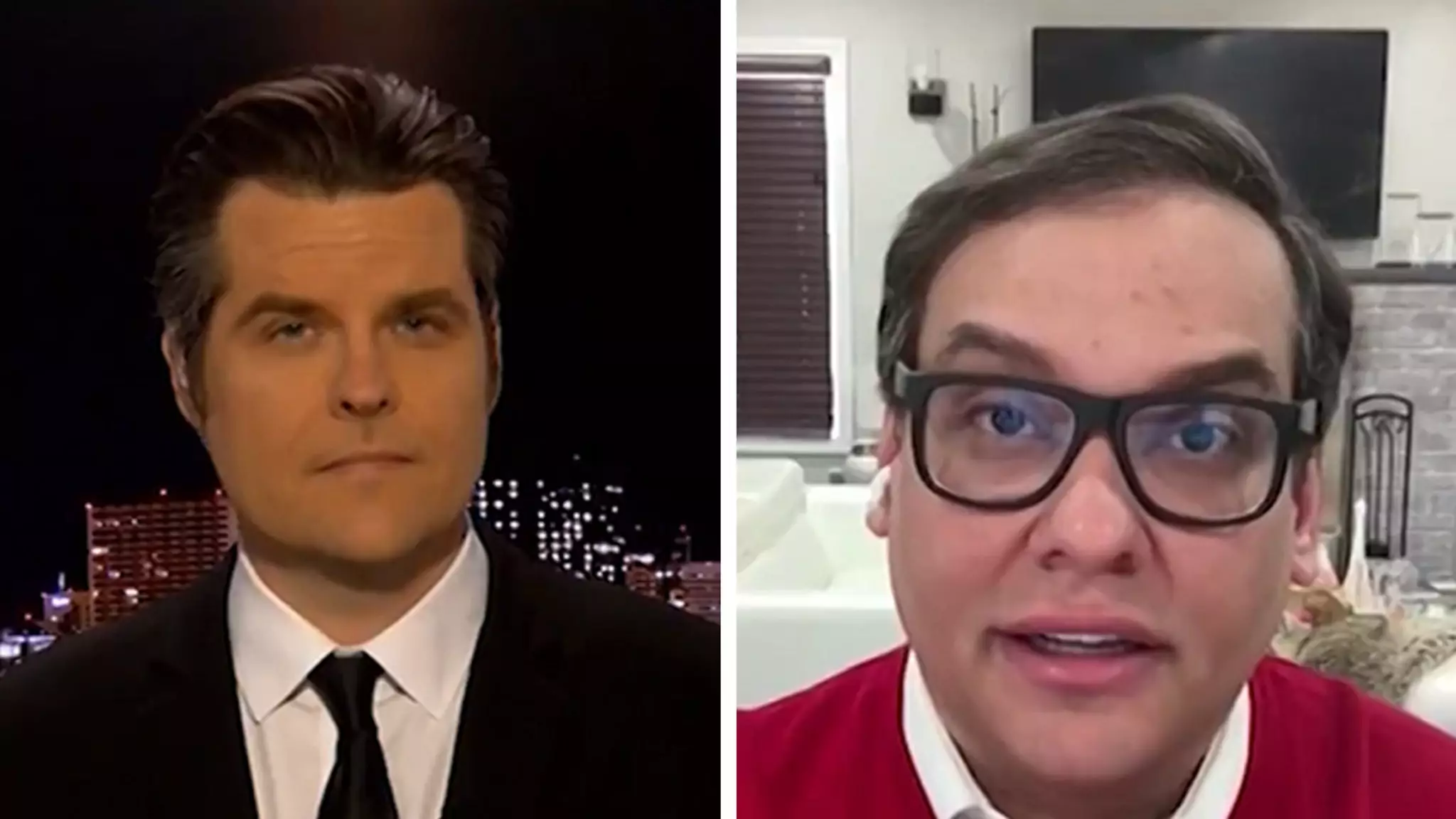The narrative surrounding George Santos, the embattled former congressman, is as perplexing as it is troubling. Recently, Santos voiced a desire for solitary confinement if faced with a prison sentence, raising eyebrows and eyebrows yet again. During a conversation with fellow political figure Matt Gaetz on “The Matt Gaetz Show,” he expressed this inclination under the pretense of self-preservation. This begs the question: What drives a person to prefer isolation over the complexities of human interaction, even when surrounded by people of similar circumstances? Santos claims his controversial political history makes him a target among fellow inmates, including members of gangs he once condemned. But is this a genuine concern or an exaggerated reaction from a man who seemingly has lost touch with reality?
The Erosion of Credibility
Santos’ legal troubles are significant and far-reaching. He is not merely facing one charge but multiple allegations of fraud and identity theft, reflecting a pattern of deceit that has marred his public image. After striking a deal with federal prosecutors, he pleaded guilty to two of nearly twenty charges, which is an indication of the gravity of his crimes and the extent to which he attempted to mislead constituents. This erosion of credibility has far-reaching implications not only for Santos himself but also raises questions about the integrity of political office in general. His claims of a “witch hunt” against him appear to stem from a narrative that attempts to shift blame from his own actions to external entities, adding yet another layer of bewilderment to his case.
Political Brand and Public Perception
Elected in 2022 and swiftly ousted less than a year later, Santos was a particularly bold contender, known for embellishing his biography. This fabricating of self-image not only highlights a personal downfall but also criticizes the political arena that allowed someone like him to rise, albeit briefly. As Santos evokes the shadow of the Biden family, it seems he is grasping at straws to reinforce his victimhood narrative rather than accepting accountability for his own misdeeds. This reflects a troubling trend in modern politics where individuals often deflect personal accountability in favor of conspiratorial and accusatory rhetoric.
The Prison Paradox
If Santos is ultimately sentenced to prison, the decision to request solitary confinement presents an intriguing paradox. While one might understand the instinct to protect oneself from potential threats, it also signifies an inability to confront the consequences of one’s actions. By opting to isolate himself, Santos may be depriving himself of opportunities for reflection and personal growth. Moreover, the very act of seeking solitude might serve as an escape from the communal responsibility that incarceration demands. It raises an unsettling thought: are we witnessing a man trying to evade the social and moral ramifications of his actions through physical isolation?
The complexities surrounding George Santos continue to unfold, revealing deeper issues not only about his character but about the broader implications of political accountability, integrity, and personal responsibility. As his sentencing approaches, the question looms larger: will he choose to confront the realities of his actions, or will he retreat into the shadows of solitude?

Leave a Reply